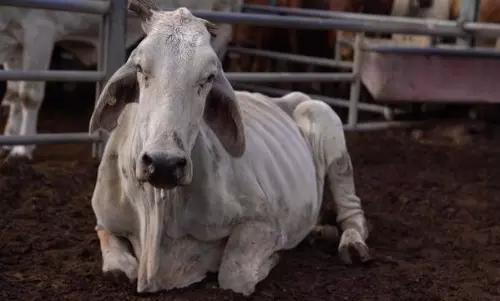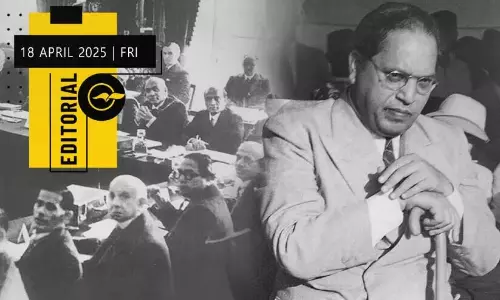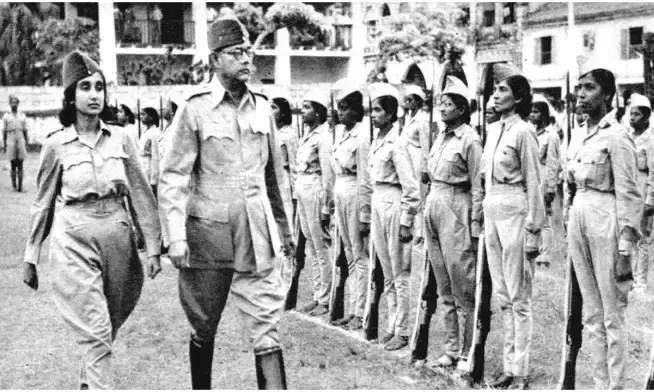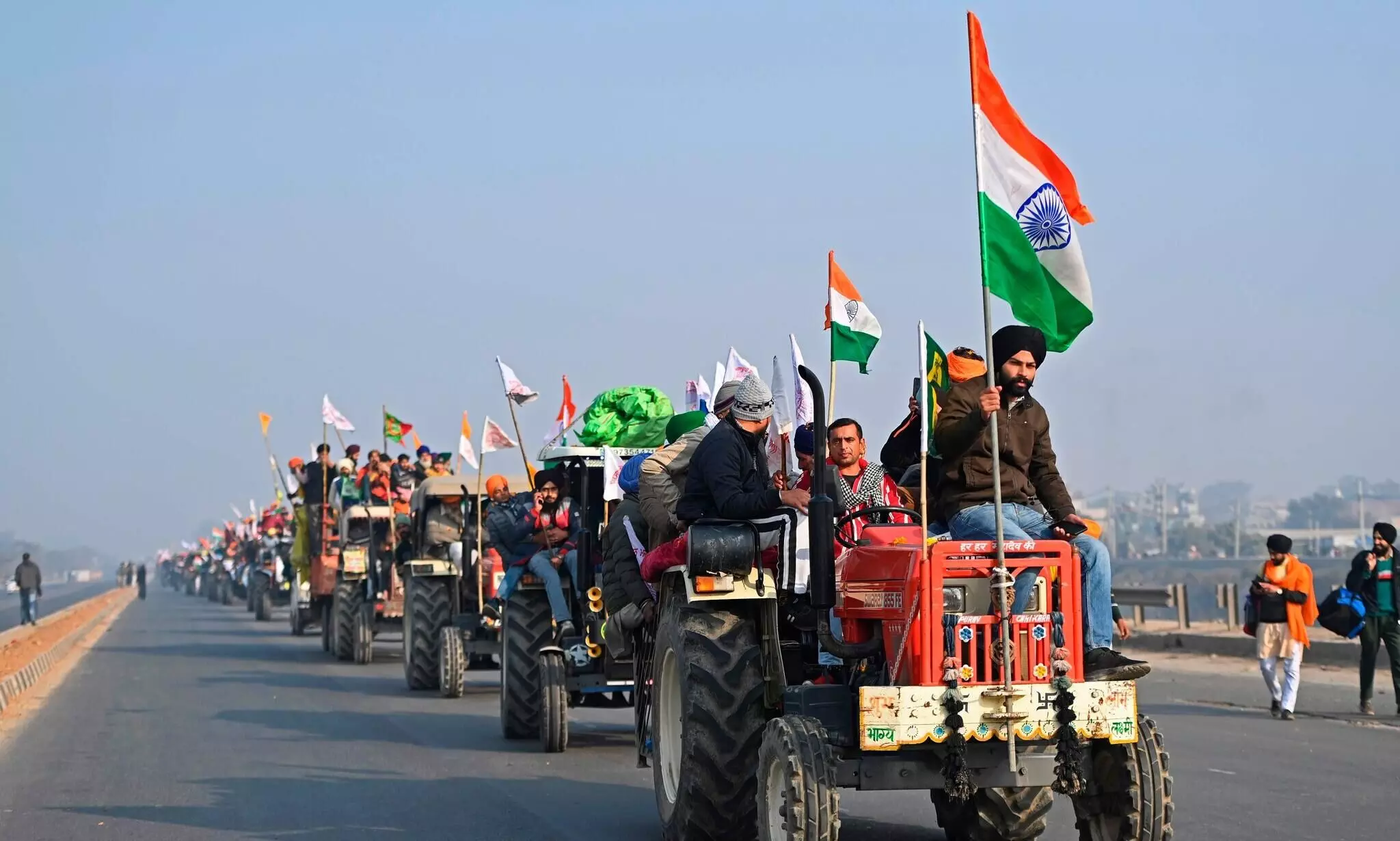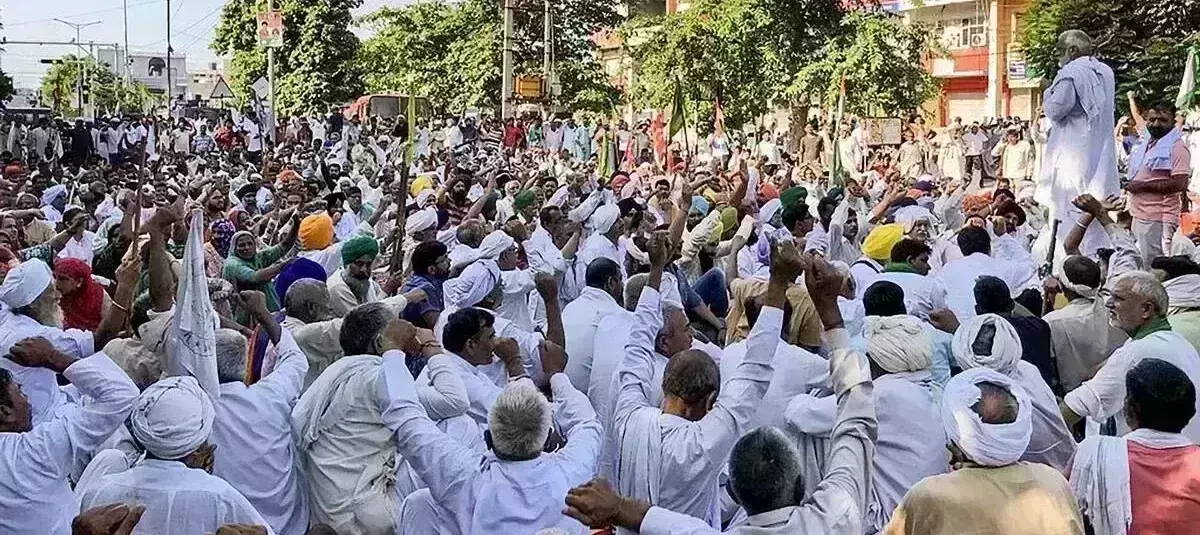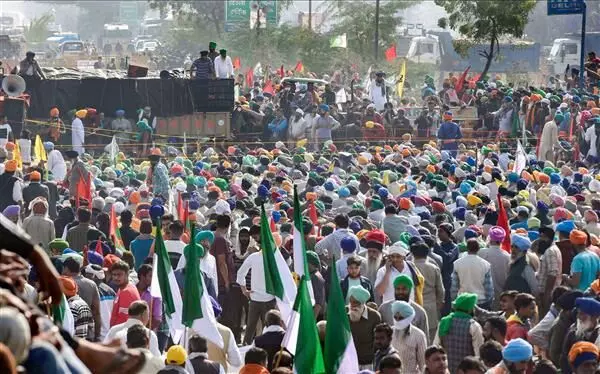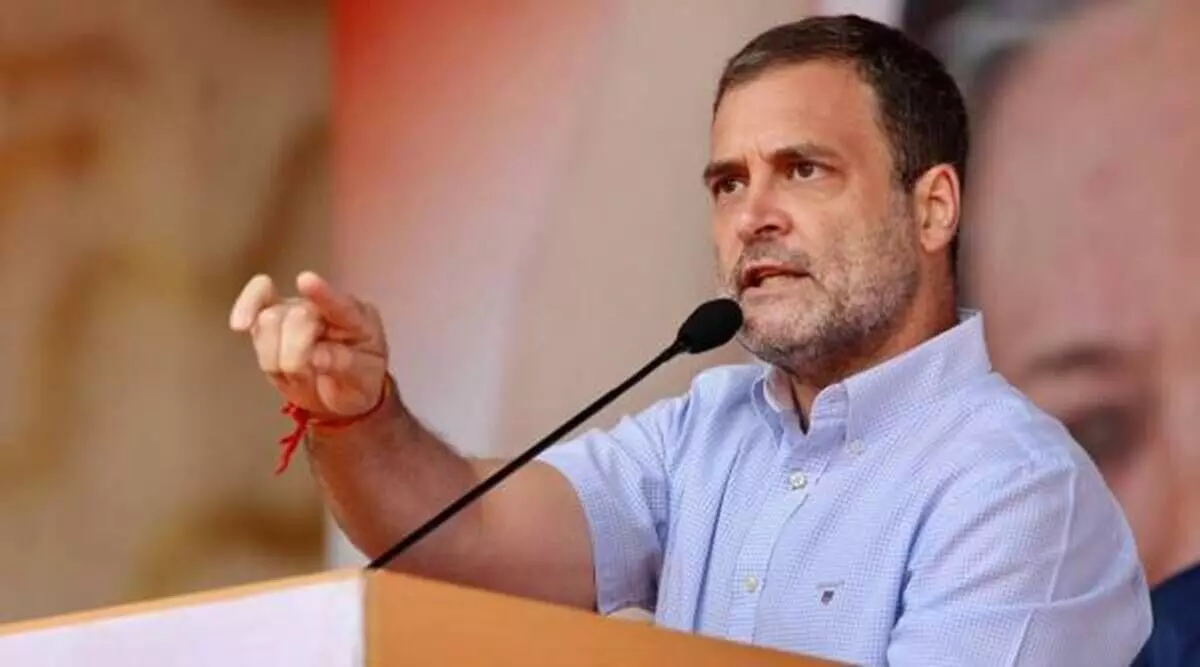
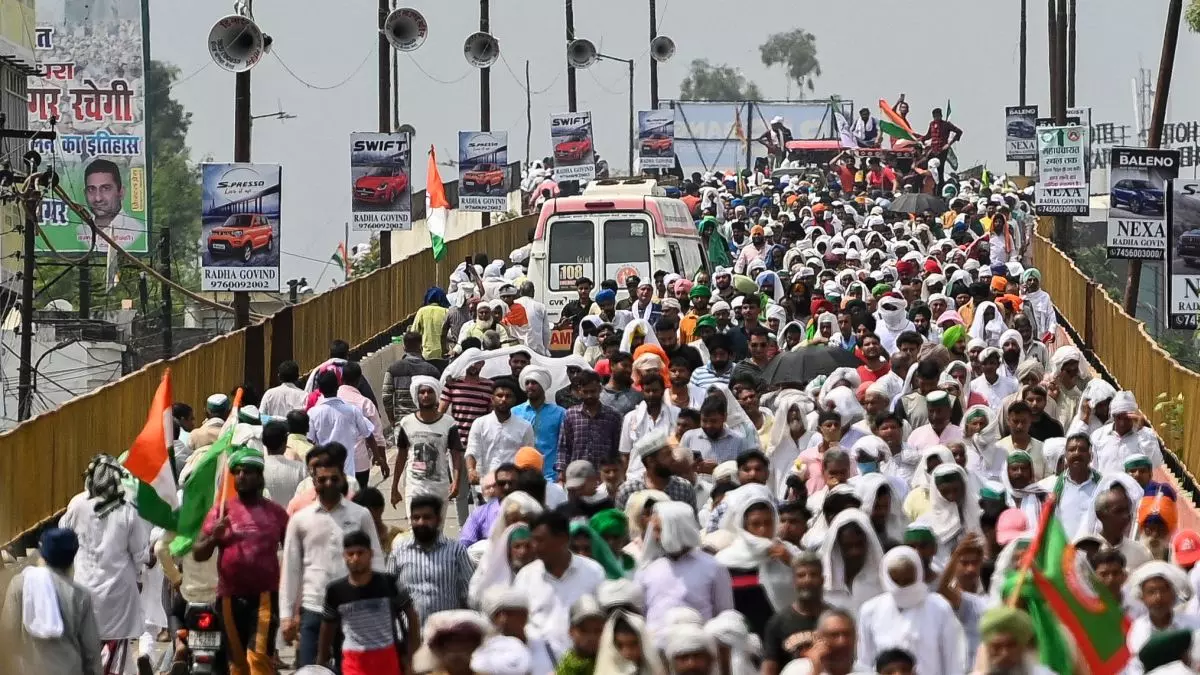
Farm laws: A Prime Minister in worried haste
text_fieldsThe Farm Laws Repeal Bill for the repeal of the three controversial farm laws passed by the Narendra Modi government in 2020, was passed by voice vote in both Houses of Parliament on Monday, the very first day of the Winter Session of Parliament, 2021. The Opposition's clamour - this time for a detailed parliamentary debate on the more-than-obvious circumstances leading to the tabling of the repeal bill, was turned down.
The Houses of Parliament were adjourned till Tuesday. What we see here is a Prime Minister in a tearing hurry to pacify the angry farmers of western UP and Punjab, who had pledged not to return to their villages until and unless the three Farm Laws of 2020 were repealed in Parliament. Punjab farmer leaders have also asked the government for a legal guarantee for a Minimum Support Price (MSP) for their produce as well as to withdraw all cases registered so far against the protesting farmers. The farmers have sought a reply from the government by tomorrow.
Shashi Tharoor, MP tweeted: "to pass laws and repeal them within a year prices lack of consultation and consideration." In all the haste of the repeal, we see a PM who can ill afford to alienate the farmers on account of the elections coming up in UP and Punjab next year.
Unlike every other protest launched against the undemocratic laws passed during the Modi era, the farmer's protests refused to fizzle out. Starting the historic protest last year on November 26, India's Constitution Day, had its own significance. The morale of the people of the country was at a historic low on myriad counts owing to the insensitive, strong-arm tactics of the Modi government.
Thanks to the outcome of the farmers' protest, India was a more hopeful country on this year's Constitution Day as after one whole year of showing deafness to farmers' appeals, PM Modi came on national TV on November 19 offering an apology to the protestors and with a counter appeal to the farmers: "Let's start afresh".
The historic farmers' protest started after the Modi government passed the three bills aimed at corporatizing the farm sector. The year-long protests took place at three venues along the Delhi-Haryana border, namely at Singhu, Tikri and Ghazipur, where the young and old of farmer families mainly from western UP and Punjab stayed put braving the elements, the pandemic, government repressions, several divisive techniques and a vicious godi media.
Gandhian protests in a "techno-feudal" world
The food growers of the country, who came to the streets with their tractors and stayed in tents, losing 700 lives in the bargain, were consistently dubbed as terrorists, secessionists and anti-nationals for raising their just demands.
The hasty reparations sought by the PM now to woo the farmers has restored some faith in democratic traditions like a plebiscite in making even strong men like Modi retreat. Even when the state of India was increasingly circumscribing its citizens with UAPA, spy cam surveillance and crowd control measures, the resolute farmers have proved that non-violent Gandhian-style feet-on-the-ground mass protests are effective even in a "post-capitalist, techno-feudal world". As Noam Chomsky said, "the only chance for humanity is for massive, organized, popular action and opposition.
No bheek (alms) thrown by benevolent rulers
No victory that comes at the end of a protracted mass struggle is a "bheek" thrown to protestors by benevolent rulers or people in power. Despite the argument that post-World War II, the British Empire had started unravelling on its own and the British had no choice but to grant India freedom around the time that it did, it was the Mahatma's spirit of leadership that essentially built up the collective will of the diverse people across the subcontinent to demand poorna Swaraj as a matter of right and pride and to refuse to buckle in the face of the divisive strategies of the Empire.
Today, though the UP–Punjab elections are the pressing reason for the government's U-turn to repeal the three farm laws, we owe it to the farmers for having put up an impenetrable, uncompromising opposition against a ruthless state.
Among its multiple demands, the Samyukt Kisan Morcha has also asked for land from the government to erect a memorial to the martyrs of the Farmer's Protest of 2020-2021. The 2020-2021 farmer's protest that cost 750 lives is dubbed as the "second Jallianwala Bagh" after the historic 1919 massacre by General Dyer that claimed around 1,000 lives according to Indian National Congress records. Jallianwala Bagh massacre proved to be a major turning point in our country's struggle for independence.
Upholding the secular, democratic Constitution
We have seen the PM choking with emotions on national TV at a couple of earlier junctures too. In spite of the PM's professed best intentions, the net outcome of all his efforts is that India has slipped into an enviable 101st position in Global Hunger Index, behind Pakistan and Bangladesh, while Gautam Adani, the Prime Minister's close friend, has climbed up the ladder to become the richest Indian. The farmers, not willing to take the nation-wide televised apology of the PM at face value, decided to stay put for another ten days to ensure that the BJP majority parliament does due diligence to repeal the Farm Laws of 2020. We have quite seriously and understandably become a nation of doubters of the PM's assurances.
Organising resolutely without allowing anyone to engineer divisions is the only way in front of citizens vis-à-vis several other outrageous bills that have been rammed through Parliament in the Modi era. But it's difficult to say how far the country, its people and opposition leaders will stay united in order to rescue democracy when it comes to laws such as CAA and Article 370. These laws require a higher moral calibre from us, the people, to hold forth unitedly till the end, upholding our secular, democratic Constitution.
(Leena Mariam Koshy is an independent writer based in Kozhikode, Kerala)





